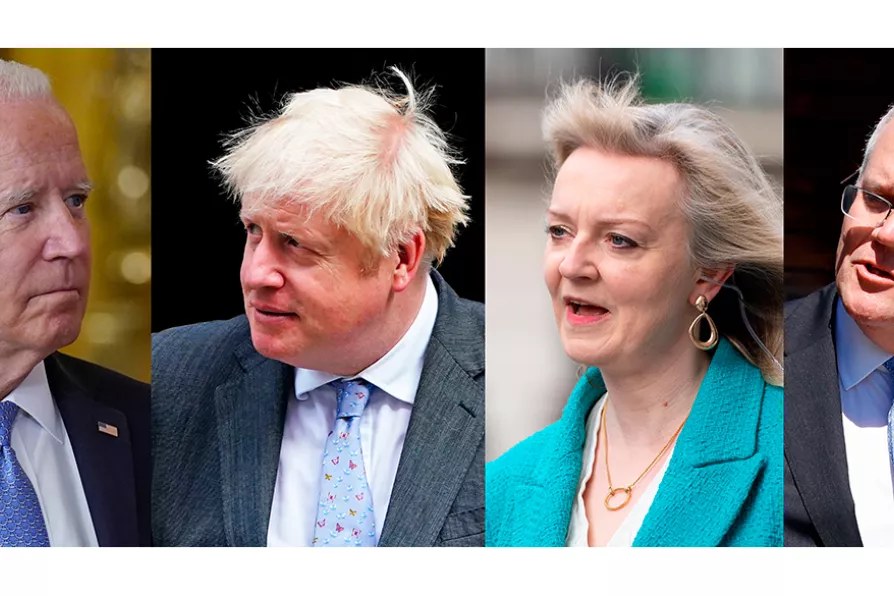ALEX HALL interviews PAUL HOLDEN, whose bombshell book uses leaked documents to expose how the Starmer faction used systematic dishonesty to seize power and reopen the door to the corrupting ecosystem of corporate lobbying and sleaze

 (L to R) Joe Biden, Boris Johnson, Liz Truss, Scott Morrison
(L to R) Joe Biden, Boris Johnson, Liz Truss, Scott Morrison
THE deal to supply Australia with nuclear-powered submarines brokered with the US and Britain has sent shock waves across the world.
There was no mention of China when the deal was announced, and Boris Johnson told MPs that it was “not intended to be adversarial” towards China. But few will believe this – certainly not the Chinese government which has described it as the product of a “cold war mentality.”
That is exactly what it is. Aukus, as it is known, is a major new military alliance which draws Australia in as a much closer ally of the US and a key force in the region.

From 35,000 troops in Talisman Sabre war games to HMS Spey provocations in the Taiwan Strait, Labour continues Tory militarisation — all while claiming to uphold ‘one China’ diplomatic agreements from 1972, reports KENNY COYLE













